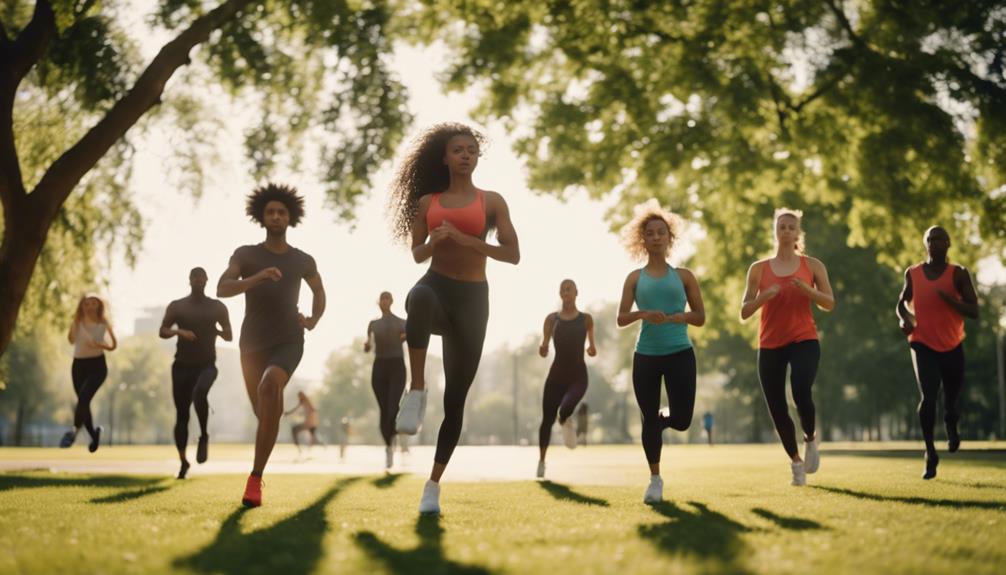The relationship between exercise and appetite has been a topic of much debate among fitness enthusiasts, athletes, and health-conscious individuals. Many people wonder whether increased physical activity allows for a more generous intake of calories without the risk of unwanted weight gain. Understanding this relationship is essential for those looking to balance their energy expenditure with their dietary needs. In this article, we will explore how exercise influences appetite, the science behind caloric needs, and practical strategies for managing calorie intake while maintaining an active lifestyle.
Understanding the Relationship Between Exercise and Appetite
Exercise can significantly affect your appetite, but the response varies from person to person. Some individuals may find that physical activity stimulates their hunger, making them crave more food post-exercise. Others may experience a suppressed appetite immediately after a workout, especially if the exercise was intense. This variability can be attributed to factors such as the type, duration, and intensity of the exercise, as well as individual differences in metabolism and hormone levels.how much exercise does an australian shepherd needIs Public Health Major HardHow To Section Someone For Mental Health In Massachusetts
Moreover, the timing of meals in relation to exercise plays a crucial role in appetite regulation. For example, those who engage in endurance training may find themselves needing to eat more to support their increased energy demands. On the other hand, strength training can lead to muscle soreness, which may temporarily diminish hunger. Recognizing these patterns can help you make more informed decisions about your food intake in relation to your fitness routine.
How Exercise Influences Your Body’s Caloric Needs
When you exercise, your body requires more energy to fuel your activity. This increase in energy expenditure means that your caloric needs will also rise, especially during high-intensity workouts or long-duration activities. The basal metabolic rate (BMR)—the number of calories your body burns at rest—also plays a role, as regular physical activity can help elevate this rate over time, leading to higher overall caloric needs.
It’s important to note that the type of exercise influences how many calories you burn. Aerobic activities like running or cycling typically burn more calories during the activity than anaerobic exercises such as weightlifting. However, resistance training can result in an increased metabolic rate in the hours following the workout, thanks to the process of muscle repair and recovery. Understanding these dynamics can help you tailor your diet to meet your body’s unique energy demands.
The Science Behind Energy Expenditure and Food Intake
Energy expenditure and food intake are deeply interconnected. When you exercise, your body utilizes glycogen stores for immediate energy, which can lead to a temporary caloric deficit. Following this energy expenditure, your body’s natural response often involves increased appetite to replenish what was lost. This physiological mechanism is driven by hormones such as ghrelin, which stimulates hunger, and leptin, which signals satiety.
Research suggests that while exercise generally leads to increased food intake, the relationship is not always linear. Some people may overcompensate for calories burned during exercise, while others may eat less due to the fatigue or discomfort associated with intense workouts. Understanding this relationship can help you navigate your eating habits post-exercise, allowing you to fuel your body adequately without falling into the trap of overeating or undereating.
Can You Eat More Without Gaining Weight? The Facts
The short answer is yes; you can eat more if you exercise regularly, but it requires careful monitoring of both your activity levels and caloric intake. If you engage in consistent, intense exercise, your body’s increased caloric needs can justify a larger food intake. However, the key is to ensure that these additional calories come from nutrient-dense sources rather than empty calories, which can lead to weight gain.
It’s also vital to consider the concept of "caloric balance." If the calories you consume are equal to or less than the calories you expend, you can maintain or lose weight. Therefore, while exercise does provide leeway to increase your food intake, it’s essential to focus not only on the quantity of food but also on the quality and nutrient composition.
Timing Your Meals: When to Eat Around Your Workouts
Meal timing can significantly impact your performance and recovery. Consuming a balanced meal or snack before exercising can provide the necessary energy for your workout, while a post-exercise meal is crucial for recovery and muscle repair. Ideally, you should aim to eat a meal rich in carbohydrates and protein within 30 to 60 minutes after your workout to replenish glycogen stores and support muscle synthesis.
Strategically timing your meals can also help regulate hunger cues. Eating too close to a workout may lead to discomfort during exercise, while waiting too long to refuel can leave you feeling fatigued and hungry. Finding the right balance of timing and composition in your meals can enhance your performance and overall energy balance.
Choosing Nutrient-Dense Foods to Fuel Your Activity
When increasing your food intake to accommodate more exercise, prioritizing nutrient-dense foods is essential. Foods high in vitamins, minerals, and macronutrients provide the fuel your body needs for optimal performance and recovery. Whole grains, lean proteins, healthy fats, fruits, and vegetables should form the foundation of your diet to ensure you are nourishing your body adequately while supporting your exercise regimen.
Avoiding processed and high-sugar foods, which may offer empty calories, is crucial. Although these foods can provide a quick energy boost, they often lack the nutrients necessary for muscle repair and overall health. By choosing nutrient-dense options, you can satisfy your increased caloric needs without compromising your health or fitness goals.
Balancing Calories: Exercise, Eating, and Weight Management
Achieving a balance between calories consumed and calories burned is fundamental for effective weight management. Regular exercise increases your caloric expenditure, allowing for a larger caloric intake while maintaining or losing weight. However, it’s important to track not just the calories but also the macronutrient distribution in your diet to ensure a balanced intake that supports your fitness goals.
Establishing healthy eating habits alongside a consistent exercise routine creates a sustainable approach to weight management. Focus on developing a personalized plan that aligns your caloric intake with your exercise regimen, ensuring that you not only meet your energy needs but also maintain a healthy body composition.
Listening to Your Body: Hunger Cues and Recovery Needs
One of the most important aspects of managing your diet in relation to exercise is tuning in to your body’s hunger cues and recovery needs. After a workout, your body will often signal the need for nutrition, and it’s crucial to respond appropriately to these signals. Ignoring hunger can hinder recovery and may lead to fatigue in subsequent workouts.
Listening to your body also involves recognizing when to rest and allow for recovery. Intense exercise can deplete your energy reserves, and adequate nutrition in tandem with rest is vital for muscle repair and growth. By being attuned to your body’s signals, you can better manage your intake and support both your performance and overall well-being.
In conclusion, the interplay between exercise and appetite is complex but manageable with the right strategies. By understanding how physical activity influences caloric needs, timing your meals effectively, and prioritizing nutrient-dense foods, you can increase your caloric intake without the risk of unwanted weight gain. Ultimately, finding the right balance between exercise and eating habits will empower you to achieve your fitness goals while promoting a healthier lifestyle. Listen to your body, remain mindful of your food choices, and enjoy the benefits of a well-rounded diet that complements your active lifestyle.


